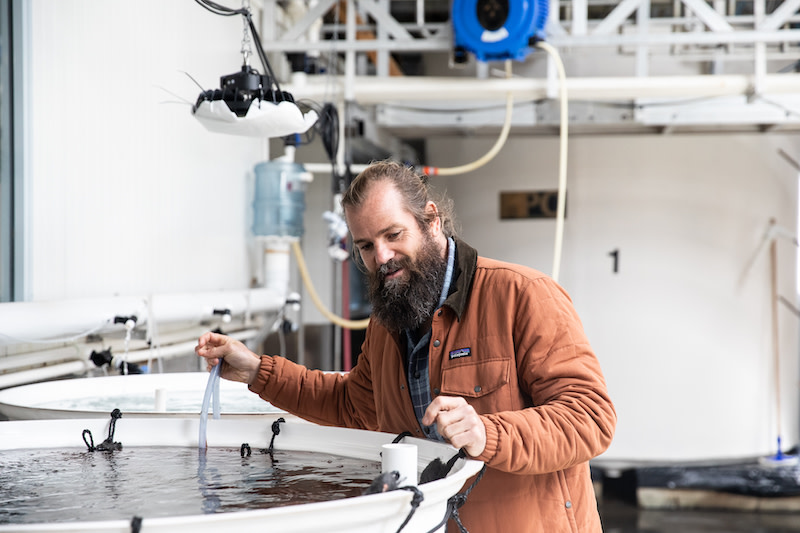Seaweed secret to curbing emissions
The founder of a start-up seaweed farming company has told a feedlot conference his business has the potential to deliver product to more than 80 per cent of Australia’s feedlot population and abate more than 1 million tonnes of carbon dioxide equivalent emissions.
And in its first year of commercial production, the Tasmanian environmental and biotech company Sea Forest expects to produce enough methane reducing seaweed to feed about 100,000 cattle, abating about 400,000 tonnes of CO2-e a year.
The equivalent of taking 100,000 cars off the road.
Key points
- Sam Elsom presented at the ALFA SmartBeef Bites Smart Sustainability webinar
- Entegra sponsored the webinar for the Australian grain fed beef sector
- Sea Forest was founded by Sam Elsom to unlock the potential of a native seaweed to Australia and New Zealand
- Asparagopis could deliver productivity benefits to cattle producers

Sam Elsom, the Chief Executive and founder of Sea Forest – the world’s first company to unlock the potential to commercial farm the Australian and New Zealand native seaweed Asparagopis at scale – told the Entegra sponsored Australian Lot Feeders’ Association (ALFA) SmartBeef Bites Smart Sustainability webinar recently, that seaweed could also deliver productivity benefits to cattle producers.
“The value to farmers is coming from three areas,” Mr Elsom said.
“Increase productivity, price premium from a differentiated low methane or carbon neutral product and – in time – returns from carbon credits, the spot price in Australia having researched above $29 a tonne.
“It doesn’t take into account cheaper finance available from banks or the avoidance of emissions tariffs from some export markets.”
Sea Forest was established in 2018, expanding on Meat and Livestock Australia funded CSIRO and James Cook University funded research into feeding livestock to seaweed to reduce emissions.
This research identified the red seaweed Asparagopis could “virtually eliminate emissions” by feeding it at a rate of 0.2 per cent of a cow’s diet or 30grams/head a day.
“Scientists also found seaweed supplements resulted in productivity, basically the bioactive compounds inside the seaweed disrupt the enzymatic pathway which would normally lead to the production of methane and converting that which would have been dispelled by the animal as a gassy waste product…into energy the animal uses to grow faster,” Mr Elsom said.
“The existing science points to an average of about 20 per cent increase in productivity, (so we are) talking about a positive environmental impact and also an increase in profitability for farmers.”
This work has been replicated throughout the world and the first trials of Sea Forest product have been conducted by a Tasmanian wool grower and dairy giant Fonterra.
Mr Elsom said he’s speaking with leading feedlot and cattle companies to start trials in these sectors.
The price of the product would be about $1/head a day.
Mr Elsom told the webinar the global seaweed industry was worth $11 billion, but in Australia it was only $2 million as farming was restricted to native or endemic species, most of which occurred in the northern hemisphere.
Other parts of the world are restricted from farming Asparagopis.
Mr Elsom was one of three speakers at the webinar sponsored by Entegra.
